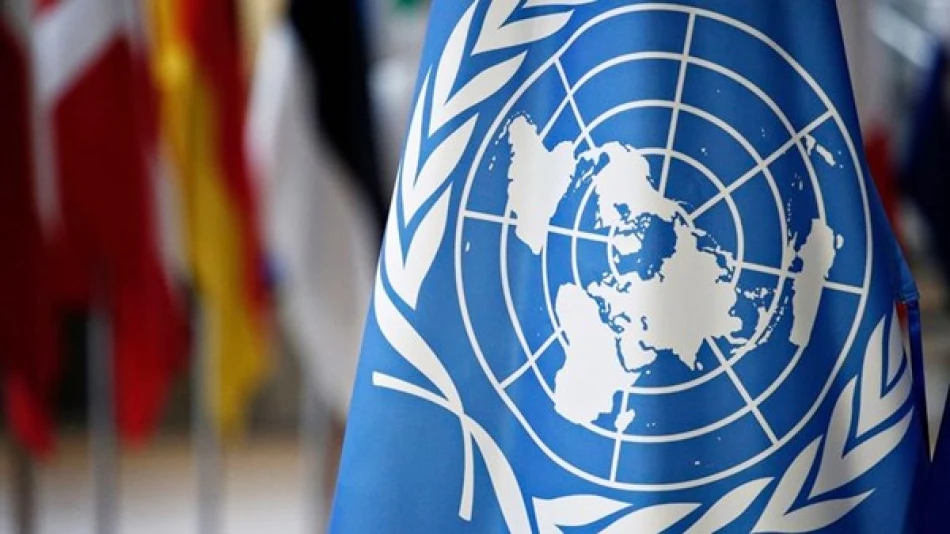
UN Security Council Discusses Gaza Crisis, Warns of Worsening Hunger Threat
UN Security Council Confronts Gaza's Spiraling Humanitarian Crisis as Famine Spreads
The UN Security Council convened an emergency session Tuesday to address the deteriorating humanitarian situation in Gaza, where over two million residents face acute food shortages and spreading malnutrition. Despite international aid efforts delivering 270,000 hot meals last week alone, UN officials warn that current supply levels fall catastrophically short of meeting basic survival needs, with children particularly vulnerable to long-term developmental damage from severe undernourishment.
A Crisis of Scale and Access
Miroslav Jenča, UN Assistant Secretary-General, painted a stark picture during Tuesday's briefing, highlighting the "difficult and dangerous conditions" facing Gaza's besieged population. The scale of need has overwhelmed existing humanitarian infrastructure, with 71 operational kitchens across the territory representing just a fraction of what's required to feed more than two million people.
The UN Office for the Coordination of Humanitarian Affairs (OCHA) emphasized that current food supplies entering Gaza fail to meet even minimum population requirements. This shortfall occurs despite coordinated efforts by UN agencies and humanitarian partners, who face significant operational barriers preventing adequate aid distribution to local communities.
Healthcare System Under Extreme Pressure
The humanitarian crisis extends beyond food security. Of the 270,000 meals distributed last Thursday, 10,000 were specifically allocated to healthcare facilities already struggling with severe operational difficulties due to widespread infrastructure damage and critical supply shortages.
OCHA reports an acute shortage of essential medications, compounding pressure on healthcare workers who continue operating under extremely difficult conditions with severely limited resources. This medical supply crisis threatens to create secondary health emergencies as the population's immune systems weaken from malnutrition.
Long-term Developmental Consequences
UN officials express particular concern about the crisis's impact on children, who face increased vulnerability to immune system deficiencies as malnutrition levels rise. This threatens not only immediate survival but also long-term growth and development prospects for an entire generation.
The warning reflects broader patterns observed in prolonged humanitarian crises, where childhood malnutrition creates lasting cognitive and physical impairments that can persist decades beyond the immediate emergency.
Operational Challenges and Security Concerns
OCHA's statement emphasized the urgent need for increased food supply volumes and, critically, the establishment of a safe operating environment that allows humanitarian workers to reach those in need quickly and efficiently.
This requirement for enhanced security and access represents one of the most significant obstacles to scaling up relief operations. Without guaranteed safe passage and operational security, even increased aid supplies cannot reach their intended recipients effectively.
International Response and Next Steps
The Security Council session reflects growing international concern about Gaza's humanitarian trajectory. The UN's public warnings suggest that without immediate intervention to increase aid flows and improve distribution mechanisms, the territory faces a full-scale famine that could affect the entire population.
The emphasis on creating secure humanitarian corridors indicates that diplomatic efforts must now focus not only on increasing aid volumes but also on negotiating the operational frameworks necessary to deliver assistance at the scale required for over two million people facing acute food insecurity.
Most Viewed News

 Layla Al Mansoori
Layla Al Mansoori






